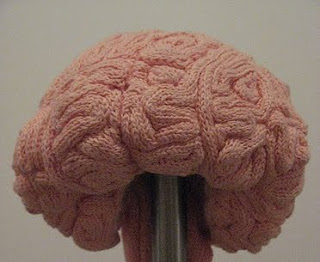Saturday, October 03, 2009
Games that Teach: Junana in a non-alternative present!
Junana mined a lot of research being done on the use of games in education. PBS did a program about this. Check out the Games that Teach section on PBS's Digital Nation site. We need to stop asking when schools are going to integrate gaming into their curriculum, and ask how!
Photo Credit: http://www.flickr.com/photos/rofi/2647699204/sizes/m/ rofi cc licensed
Thursday, September 24, 2009
Prankmeisters are real... or not
In Junana, Scratchy spent a good deal of time at college working out pranks to gain cred and have fun. In the actual Reed College there is a fine tradition of pranking, one that has the entire city of Portland on edge at times. One of Reed's former prankmeisters, Igor Vamos, joined in the Guerilla Theater of the Absurd, and pranked the campus and the town for years. Now a member of the Yes Men, he continues to bring live theatre into corporate meetings across the planet.
What is the essence of a great prank? It has to be more than a simple joke. A great prank needs to mine the river of absurdity that all forms of the serious create by their posturing. The serious and the absurd are linked at the waist, and the prank flings open the curtain on this fact.
photo credit: http://www.flickr.com/photos/oter/3574042146/ oter cc license on flickr
Monday, September 14, 2009
Do the Brainwave exercises and Jorge will smile at you

Friday, September 04, 2009
Living in the Museum Museum
photo URL: http://en.wikipedia.org/wiki/File:Crystal_Palace_-_Queen_Victoria_opens_the_Great_Exhibition.jpg
Friday, August 28, 2009
Social Networking design patterns: Scratchy would be all over these
Designing Social Interfaces (a wiki that you can help build over time!).
The core authors, Christian Crumlish and Erin Malone, also are doing a book on this which is coming out from O'Reilly. At the top of the wiki, they describe what a "pattern" is--a definition that will sound familiar to anyone about level 2 of the Game:
"A pattern describes an optimal solution to a common problem within a specific context.
A pattern is not a finished piece of code or design. Rather, it reflects the sum total of a community's knowledge and experience or expertise in a given domain.
When we talk about patterns, we often start by noticing social behavior patterns. These are patterns in what people do, with or without interfaces designed for those purposes. These patterns are interesting and fun to talk about and they help us understand what's likely to happen, but they are not the primary focus of this project.
The patterns in this collection are social design patterns (a.k.a. social user experience design patterns). They are interaction pattern [sic] for people designing social interfaces."
Since I'm on a team designing a social network platform, these patterns are extremely valuable. I've been enjoying the wiki, and will be buying the book as soon as it is out!
Saturday, August 22, 2009
Junana at Gnomedex... the other future is here now
Sunday, August 02, 2009
Reader Comments for the Book
About the Five Skillings (part one)
Saturday, August 01, 2009
Junana Technology I
Wednesday, July 29, 2009
Junana on Facebook
Saturday, January 24, 2009
Junana License
Junana by Bruce Caron is licensed under a Creative Commons Attribution-Noncommercial-Share Alike 3.0 United States License.
Based on a work at junana.blogspot.com.
Permissions beyond the scope of this license may be available at http://junana.blogspot.com/2009/01/junana-more-license-goodies.html.






